The Stillbirth Summit historically brings brilliant individuals from around the world that share our passion for stillbirth prevention. This year is no exception!
 The Stillbirth Summit was born in 2011 with a vision of bringing together the most passionate hearts and minds from around the world who share the desire to end preventable stillbirths in the United States. 10 years later the passion is still very real and the vision is clear – many stillbirths can be prevented.
The Stillbirth Summit was born in 2011 with a vision of bringing together the most passionate hearts and minds from around the world who share the desire to end preventable stillbirths in the United States. 10 years later the passion is still very real and the vision is clear – many stillbirths can be prevented.
Lindsey Wimmer RN, MSN, PHN, CPNP, CPLC, is the Founder and Executive Director of Star Legacy Foundation. She has a Bachelor of Science degree in Nursing from St. Catherine University in St. Paul, MN and a Master of Science degree in pediatric nursing from the University of Colorado Health Sciences Center. She is a pediatric nurse practitioner with 11 years in a primary care setting and 5 years in an emergency care setting. She most recently taught in the nursing department at St. Catherine University. Ms. Wimmer is certified in Perinatal Loss Care (CPLC) and frequently presents on perinatal loss prevention and bereavement care. Lindsey and her husband, Trent, are the parents of Garrett, their son who was stillborn at term in 2004, Grant, Bennett, and Austyn.
Presentation title: Lipoprotein (a) the new thrombophilia: Could it be an unanticipated relevant risk for recurrent pregnancy loss (RPL)?
Lipoprotein(a) or Lp(a) is a prothrombotic low density cholesterol that has been underappreciated by clinicians and therefore has not been given much attention until recently. Lp(a) is now known to be an independent risk factor for adverse cardiovascular diseases such as heart attack, stroke, pulmonary embolism and valvular disease. Researchers have demonstrated that Lp(a) has a two-fold mechanism in which it causes 1. atherosclerosis within the walls of blood vessels and 2. thrombosis or increased blood clots within the lumen of blood vessels through its similarities to a protein called plasminogen which inhibits fibrinolysis (the process of breaking down blood clots).
Pregnancy in itself is inherently a prothrombotic state. The combination of pregnancy with any of the “known” thrombophilias increases a women’s risk for adverse pregnancy outcomes. When we consider Lp(a) as a previously “unknown, unrevealed or even unimagined” thrombophilia, there may be evidence that an elevated Lp(a) level could further compound the development of poor pregnancy outcomes such as miscarriage and stillbirth. Lp(a) is not part of routine laboratory screening and therefore is not often readily identified. Lp(a) is now regarded as the silent threat that clinicians have been oblivious to for far too long. In my presentation, I will explore a clinical case history that details one woman’s experience with an elevated Lp(a) and recurrent pregnancy loss.
 Dr. Yolanda Marie Archibald is a medical school graduate and aspiring Obstetrician/Gynecologist. She received her medical degree from the Universidad Autónoma de Guadalajara School of Medicine in Guadalajara, Mexico. She currently works closely with physicians at Adefris & Toppin Women’s Specialists M.D.P.C. in Woodbury, Minnesota under the mentorship of Dr. Barbara C. Toppin. She will be applying to medical residency this year and is eager to practice medicine in the field of women’s health care. She has developed a profound interest in identifying preventable factors that contribute to recurrent pregnancy loss and managing them to decrease the burden of loss on women who repeatedly experience adverse pregnancy outcomes.
Dr. Yolanda Marie Archibald is a medical school graduate and aspiring Obstetrician/Gynecologist. She received her medical degree from the Universidad Autónoma de Guadalajara School of Medicine in Guadalajara, Mexico. She currently works closely with physicians at Adefris & Toppin Women’s Specialists M.D.P.C. in Woodbury, Minnesota under the mentorship of Dr. Barbara C. Toppin. She will be applying to medical residency this year and is eager to practice medicine in the field of women’s health care. She has developed a profound interest in identifying preventable factors that contribute to recurrent pregnancy loss and managing them to decrease the burden of loss on women who repeatedly experience adverse pregnancy outcomes.
Presentation title: Racial Disparities, Maternal Age, and Stillbirth
 This Presentation will explore the patterns of stillbirth across maternal race, ethnicity, and age in recent US data. Gaps in research and opportunities to explore proposed causal linkages will be discussed.
This Presentation will explore the patterns of stillbirth across maternal race, ethnicity, and age in recent US data. Gaps in research and opportunities to explore proposed causal linkages will be discussed.
Anne E. Brisendine, DrPH MPH CHES is an Assistant Professor of Public Health Practice in the Department of Health Care Organization and Policy at the University of Alabama at Birmingham (UAB) School of Public Health, and she serves as the Science Director of the Applied Evaluation and Assessment Center. She received her DrPH and MPH degrees from the UAB School of Public Health before completing a Postdoctoral Fellowship at the UAB Civitan-Sparks Clinics and Department of Psychology. She received her BA in American Studies from Barnard College, Columbia University. Dr. Brisendine has a background in interdisciplinary research, strategic management, and publishing, which allows her to be an effective communicator of research and policy to a variety of audiences. Her research and scholarly practice focus on a variety of topics including autism spectrum disorders, developmental monitoring in Early Head Starts, statewide systems development in education and health, early childhood mental health, and perinatal epidemiology.
Presentation title: Perinatal Morbidity and Mortality Review Process Improvement Initiative
The goal of morbidity & mortality reviews (M&Ms) is to identify correctible deficiencies in provider practices, system failures, and patient behaviors in order to improve future patient outcomes. It is widely recognized that M&Ms lack standardization and formal guidelines which ultimately negatively impacts the care moms and babies receive. The UIC Perinatal Center mapped the current process and conducted a process improvement initiative to improve M&M reviews.
 Anna Calix received her BA from Augustana College and her MPH from the University of Illinois at Chicago. She has devoted most of her career to the perinatal field. Anna worked as a research specialist for the UIC Perinatal Center, where she collected and analyzed perinatal morbidity and mortality data for 8 network hospitals, prepared cases for morbidity and mortality reviews, and coordinated hospital accreditation visits. She founded Gifts from Liam after her first child was stillborn unexpectedly at 40 weeks’ gestation. Additionally, Anna is the cochair of the Perinatal Alliance of Bereavement Care Providers of Illinois, a peer companion and support group facilitator for the Star Legacy Foundation, and has conducted and participated in several pregnancy and stillbirth research studies. She has shared her experience at numerous conferences and workshops educating providers on improved perinatal bereavement practices.
Anna Calix received her BA from Augustana College and her MPH from the University of Illinois at Chicago. She has devoted most of her career to the perinatal field. Anna worked as a research specialist for the UIC Perinatal Center, where she collected and analyzed perinatal morbidity and mortality data for 8 network hospitals, prepared cases for morbidity and mortality reviews, and coordinated hospital accreditation visits. She founded Gifts from Liam after her first child was stillborn unexpectedly at 40 weeks’ gestation. Additionally, Anna is the cochair of the Perinatal Alliance of Bereavement Care Providers of Illinois, a peer companion and support group facilitator for the Star Legacy Foundation, and has conducted and participated in several pregnancy and stillbirth research studies. She has shared her experience at numerous conferences and workshops educating providers on improved perinatal bereavement practices.
 Joanne Sorce received her BA from DePaul University, her BSN from the University of Illinois at Chicago, and her MSN from Benedictine University. Her clinical experience includes working in labor and delivery, postpartum, and neonatal intensive care units. She worked as a Nursing Outcomes Improvement Facilitator in the labor and delivery, postpartum, and nursery units at Memorial Medical Center in Springfield, IL. In this role, Joanne guided new nursing staff through orientation and encouraged their professional development. She wrote and implemented evidence based nursing policies for the units. She also taught basic fetal monitoring for residents and nursing staff. She joined UIC as the Director of Outreach Education for the UIC Perinatal Center and then became the Network Administrator. As the educator, Joanne was responsible for developing and implementing educational offerings on a variety of obstetric and neonatal topics. As Administrator, she is responsible for providing oversight of the perinatal care at the 8 member hospitals. Joanne has co-authored two articles on perinatal bereavement and delayed bathing which have been published in the Journal of Neonatal Nursing.
Joanne Sorce received her BA from DePaul University, her BSN from the University of Illinois at Chicago, and her MSN from Benedictine University. Her clinical experience includes working in labor and delivery, postpartum, and neonatal intensive care units. She worked as a Nursing Outcomes Improvement Facilitator in the labor and delivery, postpartum, and nursery units at Memorial Medical Center in Springfield, IL. In this role, Joanne guided new nursing staff through orientation and encouraged their professional development. She wrote and implemented evidence based nursing policies for the units. She also taught basic fetal monitoring for residents and nursing staff. She joined UIC as the Director of Outreach Education for the UIC Perinatal Center and then became the Network Administrator. As the educator, Joanne was responsible for developing and implementing educational offerings on a variety of obstetric and neonatal topics. As Administrator, she is responsible for providing oversight of the perinatal care at the 8 member hospitals. Joanne has co-authored two articles on perinatal bereavement and delayed bathing which have been published in the Journal of Neonatal Nursing.
This presentation will describe trends in the occurrence of stillbirth in the U.S. in recent decades; maternal health-related factors that are associated with increased risk of having a stillbirth; and concerns for maternal health after having a stillbirth.
 Dr. Suzan Carmichael is a perinatal and nutritional epidemiologist in the Departments of Pediatrics and Obstetrics and Gynecology at the Stanford University School of Medicine. She received her undergraduate education in scientific nutrition at Texas A&M University; a Master of Science Degree in International Agricultural Development at the University of California, Davis and a PhD in Epidemiology at the University of California, Berkeley.
Dr. Suzan Carmichael is a perinatal and nutritional epidemiologist in the Departments of Pediatrics and Obstetrics and Gynecology at the Stanford University School of Medicine. She received her undergraduate education in scientific nutrition at Texas A&M University; a Master of Science Degree in International Agricultural Development at the University of California, Davis and a PhD in Epidemiology at the University of California, Berkeley.
Her research focuses on finding ways to improve maternal and infant health. Exposure themes include nutrition, social context, care, environmental contaminants and genetics. Outcome themes include severe maternal morbidity, stillbirth, birth defects, and preterm delivery. She is particularly interested in understanding the intersectionality of these varied types of exposures and outcomes and how they interact to impact health and health disparities, for the mother-baby dyad, in domestic as well as global health settings.
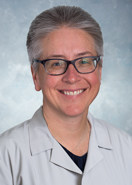 This presentation will review the most important tests in the postmortem work-up of stillbirth and their value to clinicians and families. Important autopsy and placental findings associated with stillbirth will be presented. The current pathology techniques and emerging techniques will be discussed.
This presentation will review the most important tests in the postmortem work-up of stillbirth and their value to clinicians and families. Important autopsy and placental findings associated with stillbirth will be presented. The current pathology techniques and emerging techniques will be discussed.Presentation title: Why Not Stillbirth Prevention: It is Time for Us to Try to Prevent Our Saddest Fetal Outcome
This presentation will discuss the lack of fetal movement education standardization and stillbirth prevention protocols in the US and how I incorporated the UK/Austrialia protocols and fetal movement education in my practice.
Dr. Heather Florescue is an OBGYN at in private practice at Women’s Gynecology and Childbirth Associates in Rochester, N.Y. She delivers babies at Highland Hospital in Rochester, NY. Her passion is doing grief counseling and support for patients who have experienced loss – this lead to a passion for spreading awareness, education for providers and taking up the cause of prevention.
She received her medical degree at the University of Rochester School of Medicine & Dentistry, completed her internship and residency in obstetrics & gynecology at the University of Rochester Medical Center. She is certified by the American Congress of Obstetrics & Gynecology. She and her husband are parents to a set of triplets. Dr. Florescue is passionate about the prevention of pregnancy and infant loss and the care for families who suffer these terrible tragedies.
Presentation title: Review of Ireland’s Perinatal Mortality Audit Reports (2009-2017)
Ireland is one of few high-income countries with an established national perinatal mortality audit that is published in an annual report. This study reviewed the national perinatal mortality audit reports and highlights the content, trends in perinatal mortality data seen on a national level, and importantly, the recommendations formed and their related implementation.
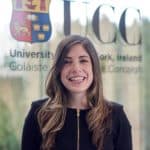 Arlene Gutman is a Canadian studying abroad, in her final year of the Graduate Entry Medicine program at University College Cork in Cork, Ireland. She completed a Bachelor of Science in Biology, with a minor in World Languages at Queen’s University in Kingston, Ontario, Canada. Arlene developed a special interest in Obstetrics and Gynecology after working on a cervical smear randomized control trial in Florida before entering medical school, and has been able to pursue research focused on perinatal mortality auditing and reporting through the Pregnancy Loss Research Group led by Professor Keelin O’Donoghue. I hope to be pursuing a career in Obstetrics and Gynecology in the future.
Arlene Gutman is a Canadian studying abroad, in her final year of the Graduate Entry Medicine program at University College Cork in Cork, Ireland. She completed a Bachelor of Science in Biology, with a minor in World Languages at Queen’s University in Kingston, Ontario, Canada. Arlene developed a special interest in Obstetrics and Gynecology after working on a cervical smear randomized control trial in Florida before entering medical school, and has been able to pursue research focused on perinatal mortality auditing and reporting through the Pregnancy Loss Research Group led by Professor Keelin O’Donoghue. I hope to be pursuing a career in Obstetrics and Gynecology in the future.
Presentation title: Development of a core outcome set for reduced fetal movement research
This presentation will describe the development of a core outcome set in reduced fetal movement research and will cover what core outcome sets are, why they may be useful, how they are constructed, and the purpose of developing one for use in reduced fetal movement research.
 Dexter Hayes is a PhD student at the Tommy’s Research Centre in Manchester, UK. His research focuses on evidence synthesis in reduced fetal movement research and aims to determine if combining the results from published studies can determine whether interventions for reduced fetal movement have a beneficial effect on reducing adverse pregnancy outcomes.
Dexter Hayes is a PhD student at the Tommy’s Research Centre in Manchester, UK. His research focuses on evidence synthesis in reduced fetal movement research and aims to determine if combining the results from published studies can determine whether interventions for reduced fetal movement have a beneficial effect on reducing adverse pregnancy outcomes.
Presentation title: Rainbow Clinic – Understanding the need for and impact of a specialist antenatal service for pregnancy after loss
This presentation will review data regarding the medical and psychological challenges of pregnancy/ies after loss. It will describe the evolution of a model of care for parents after loss and the components of care. The presentation will then provide evidence of the effectiveness of specialist pregnancy after loss services.
 Dr. Alexander Heazell is Professor of Obstetrics and Director of the Tommy’s Stillbirth Research Centre, University of Manchester, UK and Consultant Obstetrician at St Mary’s Hospital, Manchester. His research portfolio includes science, clinical and qualitative research studies to gain better understanding in order to prevent stillbirth and improve care for parents after stillbirth or perinatal death. He has received over £4M of grant income and has published over 200 research papers. He led the Stillbirth Priority Setting Partnership, co-led the 2016 Lancet Ending Preventable Stillbirth Series and was the lead investigator for the national MiNESS case control study, the evaluation of the Saving Babies Lives programme and the National Rainbow Clinic Roll-Out Study. He has also collaborated with journalists to make the Stillbirth Stories archive (www.stillbirthstories.org) and with an artist on the StillBorn project (www.stillbornproject.org.uk).
Dr. Alexander Heazell is Professor of Obstetrics and Director of the Tommy’s Stillbirth Research Centre, University of Manchester, UK and Consultant Obstetrician at St Mary’s Hospital, Manchester. His research portfolio includes science, clinical and qualitative research studies to gain better understanding in order to prevent stillbirth and improve care for parents after stillbirth or perinatal death. He has received over £4M of grant income and has published over 200 research papers. He led the Stillbirth Priority Setting Partnership, co-led the 2016 Lancet Ending Preventable Stillbirth Series and was the lead investigator for the national MiNESS case control study, the evaluation of the Saving Babies Lives programme and the National Rainbow Clinic Roll-Out Study. He has also collaborated with journalists to make the Stillbirth Stories archive (www.stillbirthstories.org) and with an artist on the StillBorn project (www.stillbornproject.org.uk).
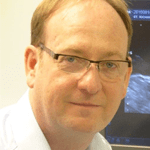 Dr Matthew Jolly, MBBS MD MRCOG is the National Clinical Director for Maternity Review and Women’s Health of the UK National Health Service.
Dr Matthew Jolly, MBBS MD MRCOG is the National Clinical Director for Maternity Review and Women’s Health of the UK National Health Service.
Matthew is an experienced clinician who is committed to providing excellent individual care and to the strategic improvement of maternity services and women’s health.
He qualified at St. Mary’s Hospital Medical School and trained as an obstetrician and gynaecologist in the North West Thames region, including two years researching the role of maternal metabolism in fetal growth at Imperial College School of Medicine. Matthew trained as a sub specialist in maternal and fetal medicine at the Centre for Fetal Care, Queen Charlotte’s & Chelsea Hospital. Since 2001 he has worked as a consultant obstetrician and gynaecologist at Western Sussex Hospitals NHS Trust and Portsmouth Hospitals NHS Trust. He has also worked as a departmental clinical director and since 2013 as joint clinical director for The Maternity Children and Young People South East Coast Strategic Clinical Network.
Matthew’s Strategic Clinical Network work has led to several national roles including sitting on the Women’s Health Patient Safety Expert Group, working with Specialised Commissioning, supporting the oversight and implementation of the NHSE stillbirth care bundle and working as a stakeholder with NICE.
Presentation title: Effect of the COVID-19 pandemic on stillbirth
The COVID-19 pandemic has had a profound impact on healthcare systems, societal structures and the world economy. The adverse effects of the COVID-19 pandemic on maternal and perinatal health are not limited to the morbidity and mortality caused directly by the virus itself. Nationwide lockdowns, disruption of healthcare services and fear of attending healthcare facilities may also have had an impact on the wellbeing of pregnant people and their babies. In this presentation we will focus on the effect of the COVID-19 pandemic on stillbirth.
 Asma Khalil is a Professor of Obstetrics at St George’s Hospital, University of London. She is a subspecialist in Maternal and Fetal Medicine. She gained her MD at the University of London in 2009 and also has a Masters degree in Epidemiology from the London School of Hygiene & Tropical Medicine as well an MRC scholarship. Asma is the Lead for the Multiple Pregnancy service at St George’s Hospital.
Asma Khalil is a Professor of Obstetrics at St George’s Hospital, University of London. She is a subspecialist in Maternal and Fetal Medicine. She gained her MD at the University of London in 2009 and also has a Masters degree in Epidemiology from the London School of Hygiene & Tropical Medicine as well an MRC scholarship. Asma is the Lead for the Multiple Pregnancy service at St George’s Hospital.
Asma has published more than 300 peer reviewed papers, and many published review articles and chapters. She has been awarded many research prizes, both at national and international meetings. Her research interests include twin pregnancy, fetal growth restriction and hypertensive disorders in pregnancy.
Asma is passionate about innovation and the inventor of the HAMPTON, an award-winning digital innovation which enables pregnant women to monitor their blood pressure safely at home. She is also a National Innovation Accelerator (NIA) Fellow.
Asma is committed to the implementation of clinical guidelines in practice and believes that they could reduce inequalities in care across the NHS. She had a three year Fellowship with NICE and has been a member of the NICE Clinical Standards and Expert Advisor to the NICE Centre for Clinical guidelines.
Asma is also an Editor for the Ultrasound in Obstetrics and Gynecology Journal and she works closely with the Twins Trust Charity and together they have set up the world-first Twins Trust Centre for Research and Clinical Excellence at St George’s Hospital.
Asma Khalil is a professor of Maternal Fetal Medicine at St George’s Hospital in London. She is the Lead of the Twins Trust Centre for Research and Clinical Excellence. She is the Obstetric Lead of the UK National Maternity and Perinatal Audit (NMPA).
Presentation title: Emerging ideas in causes of stillbirth.
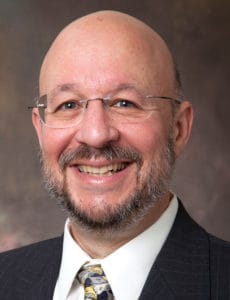 After bereavement support following a pregnancy loss, the next most important step is to
After bereavement support following a pregnancy loss, the next most important step is to
determine the cause of the loss. This can both start the healing process and potentially help prevent future losses. Unfortunately, current pregnancy loss classification systems leave far too many cases unexplained. It is uniformly acknowledged that placental pathology plays a key role in understanding pregnancy loss. Therefore, we examined the placental pathology in a cohort of 385 previously unexplained stillbirths from 20-43 weeks gestational age that had been sent to a consultation service at Yale University School of Medicine.
Harvey J. Kliman is an MD, PhD graduate in Medicine and Cellular Biochemistry from the University of Chicago. He is currently a Research Scientist in the Department of Obstetrics and Gynecology, Yale University School of Medicine, and the Director of the Reproductive and Placental Research Unit with a special interest in infertility and pregnancy complications. He has over ten patents, including the “Method and system for determining placental volume.” In addition to his research and teaching activities at Yale, he also consults with doctors, patients and lawyers to evaluate complicated cases of unexplained infertility, pregnancy loss, and poor pregnancy outcomes.
Presentation title: Advances in Prediction of Pregnancy Complications
In this presentation, we will discuss different approaches to prediction of pregnancy complications, including discovery of exosomal biomarkers.
 Dr. Louise Laurent, is a Professor and the Vice-Chair for Translational Research in the Department of Obstetrics, Gynecology, and Reproductive Sciences at the University of California, San Diego. She received her medical and doctoral degrees from the University of California, San Francisco, and completed her residency in Obstetrics and Gynecology and her fellowship in Maternal Fetal Medicine at the University of California, San Diego. Her research focuses on using stem cell and genomic approaches to understand early embryo development and normal and complicated pregnancy.
Dr. Louise Laurent, is a Professor and the Vice-Chair for Translational Research in the Department of Obstetrics, Gynecology, and Reproductive Sciences at the University of California, San Diego. She received her medical and doctoral degrees from the University of California, San Francisco, and completed her residency in Obstetrics and Gynecology and her fellowship in Maternal Fetal Medicine at the University of California, San Diego. Her research focuses on using stem cell and genomic approaches to understand early embryo development and normal and complicated pregnancy.
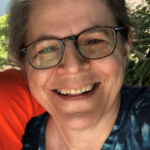 Ms. Leisher is the chair of the International Stillbirth Alliance, co-chair of the Stillbirth Advocacy Working Group that was founded by the WHO’s Partnership for Maternal, Newborn and Child Health, a member of the Every Newborn Action Plan Management Team, and a fellow at the Stillbirth Centre for Research Excellence at the University of Queensland in Australia. She is also a doctoral student in epidemiology at Columbia University; her dissertation focuses on structural racism as a cause of racial inequity in stillbirth rates and methylation of stress-related genes as a mechanism by which maternal stress may increase the risk of stillbirth. Before moving to epidemiology, Ms Leisher spent 25 years working on global poverty alleviation in Asia, Africa and Central America, including 10 years living and working in Vietnam. She holds master’s degrees in economics and epidemiology from Johns Hopkins University and the London School of Hygiene and Tropical Medicine. Ms Leisher is the mother of three living sons and Wilder Daniel, her first child who was stillborn in 1999 after a perfect pregnancy, with no cause ever found.
Ms. Leisher is the chair of the International Stillbirth Alliance, co-chair of the Stillbirth Advocacy Working Group that was founded by the WHO’s Partnership for Maternal, Newborn and Child Health, a member of the Every Newborn Action Plan Management Team, and a fellow at the Stillbirth Centre for Research Excellence at the University of Queensland in Australia. She is also a doctoral student in epidemiology at Columbia University; her dissertation focuses on structural racism as a cause of racial inequity in stillbirth rates and methylation of stress-related genes as a mechanism by which maternal stress may increase the risk of stillbirth. Before moving to epidemiology, Ms Leisher spent 25 years working on global poverty alleviation in Asia, Africa and Central America, including 10 years living and working in Vietnam. She holds master’s degrees in economics and epidemiology from Johns Hopkins University and the London School of Hygiene and Tropical Medicine. Ms Leisher is the mother of three living sons and Wilder Daniel, her first child who was stillborn in 1999 after a perfect pregnancy, with no cause ever found.Presentation title: Deciding on pregnancy after loss and trying to conceive: the experiences of couples in pregnancy after stillbirth.
 Planning a pregnancy after the death of baby is complex with many competing emotions. Couples’ experiences of their decision-making processes, with various influences, help us to understand this complex issue. New insights into men’s thinking about the decision to get pregnant after stillbirth are discussed.
Planning a pregnancy after the death of baby is complex with many competing emotions. Couples’ experiences of their decision-making processes, with various influences, help us to understand this complex issue. New insights into men’s thinking about the decision to get pregnant after stillbirth are discussed.
Dr. Margaret Murphy is a Lecturer in Midwifery, School of Nursing and Midwifery, University College Cork, Ireland. She was awarded her doctoral degree in 2018 for her thesis which explored couples’ experiences of pregnancy following stillbirth using an Interpretative Phenomenological Analysis methodology. She was elected to the Board of the International Stillbirth Alliance in 2016 and as its Treasurer in 2017. She is a Registered Midwife, Registered General Nurse, and has senior clinical experience in Midwifery and Neonatal Intensive Care. She is co-author of the book Different Baby, Different Story: Pregnancy and Parenting after loss with Dr Joann O’Leary and Dr Jane Warland.
Presentation title: Concerning Term Stillbirth and African-American Pregnancies: Can Higher-than-Standard Rates of Term Stillbirth be addressed through a modification of the 39-Week Rule?
 This session will discuss the increased risk, in the USA, of term stillbirth in patients of African heritage, and will link that reality with available evidence that suggests that such patients may have a “due date” that is earlier than 40 weeks 0 days of gestation. This session will then discuss the theoretical benefit to modify, downward, the 39-week Rule for African-American patients, and will present previously reported evidence that supports the concept that use of “elective” labor induction in this population prior to 39 weeks 0 days of gestation is a beneficial and safe intervention.
This session will discuss the increased risk, in the USA, of term stillbirth in patients of African heritage, and will link that reality with available evidence that suggests that such patients may have a “due date” that is earlier than 40 weeks 0 days of gestation. This session will then discuss the theoretical benefit to modify, downward, the 39-week Rule for African-American patients, and will present previously reported evidence that supports the concept that use of “elective” labor induction in this population prior to 39 weeks 0 days of gestation is a beneficial and safe intervention.
Dr. James A Nicholson obtained his undergraduate degree at Earlham College in 1977, his medical degree from the University of Pennsylvania in 1981 and completed his internship and residency with the Duke-Watts Family Medicine Residency Program in Durham NC in 1984.
Following his residency, Dr. Nicholson joined a private practice in North Governorsdale, Connecticut. In 1997 Dr. Nicholson returned to the University of Pennsylvania to join the Department of Family Practice and Community Medicine. While pursuing a Masters Degree in Clinical Epidemiology he published the AMOR-IPAT system of identifying pregnant women who would benefit from induction before 40 weeks of gestation. This publication was an editor’s choice paper in the American Journal of Obstetrics and Gynecology. The AMOR-IPAT concept was further developed and followed-up with a series of papers including a prospective randomized trial (RCT) of AMOR-IPAT. In 2012, Dr. Nicholson moved to the Hershey Medical Center of Penn State University in the Department of Family and Community Medicine. While there he became increasing concerned about the rising number of stillbirths in the US and has studied the correlation between strict implementation of the 39-week rule and the rising rate of term still birth. His 2016 paper on this topic was published in the American Journal of Obstetrics and Gynecology, and was the most highly cited paper from that journal in 2018.
Since 2019 Dr. Nicholson works within the WellSpan Health System at the Good Samaritan Hospital in Lebanon PA. He continues to be concerned about the impact of both: 1) a reluctance to recommend “elective labor induction,” and 2) the strict application of the 39-week Rule in patients with known risk factors for early-term stillbirth.
Presentation title: The Influence of Sleep on Maternal and Fetal Wellbeing
This presentation will highlight how maternal sleep plays a role in both maternal health as well as fetal wellbeing. Data will be presented to show that sleep offers a modifiable risk factor to improve pregnancy outcomes.
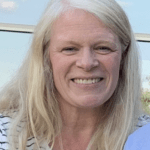 Dr. Louise O’Brien earned a bachelor’s degree with honors in physiology from the University of Leeds, United Kingdom in 1992. In 1998 she gained a Ph.D. in physiology from Keele University, United Kingdom. After completing post-doctoral work in maternal and infant health research, Dr. O’Brien relocated to the United States in 2001 to train in pediatric sleep research. She completed a post-doctoral fellowship in pediatric sleep research at the University of Louisville, KY. In 2006 she was recruited to the faculty at the University of Michigan as an Assistant Professor Dr. O’Brien also holds an appointment as an Assistant Research Scientist in the Department of Oral & Maxillofacial Surgery.
Dr. Louise O’Brien earned a bachelor’s degree with honors in physiology from the University of Leeds, United Kingdom in 1992. In 1998 she gained a Ph.D. in physiology from Keele University, United Kingdom. After completing post-doctoral work in maternal and infant health research, Dr. O’Brien relocated to the United States in 2001 to train in pediatric sleep research. She completed a post-doctoral fellowship in pediatric sleep research at the University of Louisville, KY. In 2006 she was recruited to the faculty at the University of Michigan as an Assistant Professor Dr. O’Brien also holds an appointment as an Assistant Research Scientist in the Department of Oral & Maxillofacial Surgery.
Dr. O’Brien has unique expertise and is one of very few researchers actively investigating the impact of sleep-disordered breathing on adverse pregnancy outcomes such as pre-eclampsia in the mother and growth retardation in the fetus. Since her arrival at the University of Michigan, Dr. O’Brien has built collaborations between the Sleep Disorders Center and the Department of Obstetrics and Gynecology and has several active studies. She has published over 40 original manuscripts and over a dozen invited reviews and book chapters. In addition, she is an ad hoc reviewer for NIH study sections and for 16 professional journals, including the American Journal of Respiratory and Critical Care Medicine, Archives of Disease in Childhood, International Journal of Gynecology and Obstetrics, Pediatrics, Sleep, and Sleep Medicine.
Presentation title: The Journey of the Unborn Baby in a Pregnancy Following Loss
Pregnancy that follows the loss of a baby is a complex journey that carries grief for a deceased baby alongside the struggle to attach to a new unborn sibling. Fear of another loss can cause parents to think “pregnancy” but not necessarily an unborn baby growing within. When pregnancy care focuses on the medical care and technology it can overtake and minimize the mothers’ perspective and knowledge of her unborn baby. This presentation will address ways to advocate for health care needs of both the mother and unborn baby that supports the prenatal reciprocal relationship forming during pregnancy. Ways to help parents cope, manage fear and anxiety, navigating their resurgence of grief will be discussed as well as the need for more research in this area.
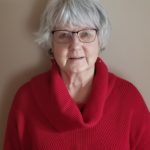 Dr. Joann O’Leary has a PhD, MPH from the University of Minnesota, and MS in Psychology from Queens University Belfast, Northern Ireland. She is endorsed as a Level IV research mentor in Infant Mental Health. Her background includes preschool special education and 18 years as a Parent-Infant Specialist in a High-Risk perinatal center and currently facilitates support groups for Star Legacy Foundation. She was a 2016 Fulbright Specialist at University College Cork, Ireland. Her research focus is how perinatal loss and the pregnancy that follows impact parents, children, and extended family members.
Dr. Joann O’Leary has a PhD, MPH from the University of Minnesota, and MS in Psychology from Queens University Belfast, Northern Ireland. She is endorsed as a Level IV research mentor in Infant Mental Health. Her background includes preschool special education and 18 years as a Parent-Infant Specialist in a High-Risk perinatal center and currently facilitates support groups for Star Legacy Foundation. She was a 2016 Fulbright Specialist at University College Cork, Ireland. Her research focus is how perinatal loss and the pregnancy that follows impact parents, children, and extended family members.
 Ms. Lynnda Parker is a registered nurse and holds degrees in education, nursing as well as graduate studies in nurse midwifery and is adjunct faculty in a school of nursing. She was a clinical nurse specialist in a high-risk perinatal center when she and Joann founded the Pregnancy after Loss Support Group, has taught child birth education specific for these families and developed a “Bodyworks” pregnancy class for women experiencing a complicated pregnancy.
Ms. Lynnda Parker is a registered nurse and holds degrees in education, nursing as well as graduate studies in nurse midwifery and is adjunct faculty in a school of nursing. She was a clinical nurse specialist in a high-risk perinatal center when she and Joann founded the Pregnancy after Loss Support Group, has taught child birth education specific for these families and developed a “Bodyworks” pregnancy class for women experiencing a complicated pregnancy.
Presentation title: Modeling the human placenta in the research laboratory
 This presentation will focus on recent advances in modeling of the human placenta in the lab, including development of placental stem cells, organoids, and “placenta-on-a-chip.” She will describe why the human placenta remains the least understood of all human organs, including a discussion of ethical dilemmas facing researchers in this field as well as ways to overcome these barriers
This presentation will focus on recent advances in modeling of the human placenta in the lab, including development of placental stem cells, organoids, and “placenta-on-a-chip.” She will describe why the human placenta remains the least understood of all human organs, including a discussion of ethical dilemmas facing researchers in this field as well as ways to overcome these barriers
Dr. Mana Parast is the Director of Perinatal Pathology at the University of California San Diego, and a physician-scientist leading a research program focused on placental development. Specifically, her research has focused on use of stem cells to develop “disease-in-a-dish” models for studying placenta-based disorders of pregnancy, including preterm birth and pregnancy loss. Most recently, in collaboration with her colleagues in obstetrics/gynecology and neonatology, she has established the Center for Perinatal Discovery at UC San Diego, with the goal of bringing together researchers of diverse backgrounds to solve problems related to perinatal health.

 Dr. Lawrence Platt earned his Bachelor of Science degree from Wayne State University and his medical degree from Wayne State University School of Medicine in Detroit, Michigan. He went on to complete both an internship and a residency in the Department of Obstetrics and Gynecology at Sinai Hospital in Detroit, Michigan, where he was selected as Chief Resident. Dr. Platt continued his training with a fellowship in maternal-fetal medicine in the Department of Obstetrics and Gynecology at the University of Southern California School of Medicine. Upon completion of his fellowship, he was offered a full-time faculty position where he attained the rank of full professor after only seven years.
Dr. Lawrence Platt earned his Bachelor of Science degree from Wayne State University and his medical degree from Wayne State University School of Medicine in Detroit, Michigan. He went on to complete both an internship and a residency in the Department of Obstetrics and Gynecology at Sinai Hospital in Detroit, Michigan, where he was selected as Chief Resident. Dr. Platt continued his training with a fellowship in maternal-fetal medicine in the Department of Obstetrics and Gynecology at the University of Southern California School of Medicine. Upon completion of his fellowship, he was offered a full-time faculty position where he attained the rank of full professor after only seven years.
A Diplomate of the American Board of Obstetrics and Gynecology and the National Board of Medical Examiners, Dr. Platt also holds a sub-specialty board certification in maternal-fetal medicine. In addition to his private practice work, he is a Clinical Professor in the Department of Obstetrics and Gynecology at the David Geffen School of Medicine at UCLA. A former chairman of the Department of Obstetrics and Gynecology at Cedars-Sinai Medical Center in Los Angeles and vice chairman at UCLA, Dr. Platt is currently on attending staff at Cedars-Sinai Medical Center, the UCLA Reagan Medical Center, and on the attending staff at St. John’s Health Center in Santa Monica where he co-directs the division of Maternal-Fetal Medicine Division.
Dr. Platt serves on numerous national and international committees and Board of Director of the major professional societies, including the American Institute of Ultrasound in Medicine (AIUM), the International Society of Ultrasound in Obstetrics and Gynecology (ISUOG), and the Society for Maternal-Fetal Medicine. He also serves on the Biomarker Discovery Project Oversight Committee of the Entertainment Industry Foundation. In addition, he is a founding board member and current treasurer for the Maternal-Fetal Medicine Foundation, now called the Pregnancy Quality Foundation. He is also currently a board member of the Pregnancy Foundation. He has served as president of the American Institute of Ultrasound in Medicine, the International Society of Ultrasound in Obstetrics and Gynecology, the Los Angeles OB/GYN Society, and as chairman of the OB/GYN Assembly of Southern California.
Dr. Platt is a fellow of the American College of Obstetricians and Gynecologists as well as a member of the American Gynecological and Obstetrical Society, Fellow of the American Institute of Ultrasound in Medicine, International Society for Prenatal Diagnosis, Society for Gynecologic Investigation, and Society for Maternal-Fetal Medicine, among others. Throughout his career, Dr. Platt has served on the scientific review committees for the American Institute of Ultrasound in Medicine, Society of Gynecologic Investigation, Society of Maternal-Fetal Medicine as well as International Society of Ultrasound in Obstetrics and Gynecology.
Dr. Platt has also received a plethora of honors and accolades throughout his career including being named annually to the “Best Doctors in Los Angeles” by Los Angeles Magazine and “Best Doctors in America” by Health Magazine. Additional awards include the Distinguished Alumni Award from Wayne State University as well as the William J. Fry Memorial Lecture Award and the Joseph H. Holmes Pioneer Award in Clinical Sciences from the American Institute of Ultrasound in Medicine. In 2008, he was the fourth American recipient of the Ian Donald Gold Medal Award from the International Society of Ultrasound in Obstetrics and Gynecology.
Dr. Platt actively maintains his involvement in research and has been principal investigator in many NIH and WHO studies, primarily in the areas of prenatal diagnosis and treatment, ultrasound in obstetrics and gynecology, biophysical assessment of fetal condition, and ultrasound screening for ovarian cancer. He was a founding editor of the highly regarded international journal Ultrasound in Obstetrics and Gynecology. An active reviewer for numerous publications, Dr. Platt holds or has held editorial board positions for the Journal of Maternal-Fetal Investigation, Journal of Ultrasound in Medicine, Journal of Reproductive Sciences, Polish Journal of Gynecological Investigations, and Ultrasound in Obstetrics and Gynecology. He is the author of more than 350 peer-reviewed scientific articles, abstracts, and book chapters. In addition, he has written four books and created educational audiotapes, movies, videotapes, and CD-ROMs.
Presentation title: Facilitators and barriers to seeking and engaging with antenatal care in high-income countries: a meta-synthesis of qualitative research.
 This presentation identifies facilitators and barriers to attending at antenatal care in high-income countries. This objective was achieved by gathering all the available qualitative data and conducting a meta-synthesis which was informed by meta-ethnography. We learnt that these barriers and facilitators are not only dependant of the individual, but also the health system and the social and political context.
This presentation identifies facilitators and barriers to attending at antenatal care in high-income countries. This objective was achieved by gathering all the available qualitative data and conducting a meta-synthesis which was informed by meta-ethnography. We learnt that these barriers and facilitators are not only dependant of the individual, but also the health system and the social and political context.
Ms. Tamara Escañuela Sánchez is a Psychology Graduate with a Master in General Health Psychology currently conducting a PhD as part of the Pregnancy Loss Research Group in University College Cork, Ireland. The aim of her PhD is to develop an evidence-based behaviour change intervention targeting modifiable risk factors for stillbirth.
Presentation Title: Exploring the pathophysiology of Late Stillbirth: How MRI studies of the maternal and fetoplacental circulation may help.
Late unexplained stillbirth is associated with maternal going to sleep position. MRI studies have elucidated the physiological effects of the maternal supine position on uteroplacental blood flow in normal late gestation pregnancy. This presentation will review the results of position studies as a model for investigating vulnerable pregnancies where the fetus may not be able to adapt to hypoxic stimuli. The direction that future studies may take will also be suggested.
 Peter Stone is Professor of Maternal Fetal Medicine in the University of Auckland and formerly Head of Department in Obstetrics and Gynaecology. His postgraduate training was in Britain, gaining a Doctor of Medicine based on Doppler studies in fetal growth restriction from the University of Bristol. After working in Wellington at the University of Otago for 11 years, where he set up the maternal fetal medicine service, he moved to Auckland in 1998. and was instrumental in the development of the New Zealand Maternal Fetal Medicine Network.
Peter Stone is Professor of Maternal Fetal Medicine in the University of Auckland and formerly Head of Department in Obstetrics and Gynaecology. His postgraduate training was in Britain, gaining a Doctor of Medicine based on Doppler studies in fetal growth restriction from the University of Bristol. After working in Wellington at the University of Otago for 11 years, where he set up the maternal fetal medicine service, he moved to Auckland in 1998. and was instrumental in the development of the New Zealand Maternal Fetal Medicine Network.
He has been a member of a number of Ministerial advisory groups including that for Down Syndrome screening and is a member of the Technical Advisory Group for Antenatal and Newborn Screening in the National Screening. For 6 years he had a UNFPA consultancy to assist in the development of maternal fetal medicine in Mongolia.
He is currently a member of the Neonatal encephalopathy working group specifically exploring the introduction of cord lactate testing at birth to reduce adverse neonatal outcomes.
Research interests include fetal welfare assessment and stillbirth, obstetric ultrasound, early pregnancy development and trophoblast biology and the detection and assessment of fetal growth abnormalities.
Current research projects include assessing maternal positional effects on fetoplacental oxygenation and investigation of circadian patterns of fetal heart rate in normal and growth restricted pregnancies
This presentation will share our experiences in Victoria, AU reducing stillbirths by working with hospitals, providers and consumers and how we adapted the UK bundles and made them practical and easy to use. We will describe an innovation project underway in the US to reduce stillbirths.
 Dr. Jane Taylor works as an Improvement Advisor and Learning Designer. She enjoys supporting learning collaboratives, networks, and innovation projects by providing expertise in improvement approaches and measurement. Dr. Taylor has advised over 100 collaboratives for both adult and pediatric populations and have worked with many states on reducing infant mortality, maternal health, medical home, primary and specialty care, reducing readmissions; to name a few. She focuses on building quality improvement capability and improving healthcare around the world. In addition, Dr. Taylor has made a personal commitment to developing an approach to improvement and innovation that makes space for equity, inclusion and diversity. Her leadership experience as a hospital CEO and COO for over ten years and as an improvement consultant to healthcare for over 20 years has prepared her well for these efforts.
Dr. Jane Taylor works as an Improvement Advisor and Learning Designer. She enjoys supporting learning collaboratives, networks, and innovation projects by providing expertise in improvement approaches and measurement. Dr. Taylor has advised over 100 collaboratives for both adult and pediatric populations and have worked with many states on reducing infant mortality, maternal health, medical home, primary and specialty care, reducing readmissions; to name a few. She focuses on building quality improvement capability and improving healthcare around the world. In addition, Dr. Taylor has made a personal commitment to developing an approach to improvement and innovation that makes space for equity, inclusion and diversity. Her leadership experience as a hospital CEO and COO for over ten years and as an improvement consultant to healthcare for over 20 years has prepared her well for these efforts.
Presentation title: Preventing term stillbirth: How important is fetal size?
The presentation will seek to differentiate the nutritional (food) and respiratory (oxygen) functions of the placenta and discuss which assessments are more strongly associated and predictive of pregnancies at high risk of stillbirth.
 Professor Basky Thilaganathan was appointed Director of Fetal Medicine at St George’s Hospital in 1999. His research interests are focused on Maternal-Fetal medicine, with a particular interest on placental dysfunction and preeclampsia (TED talk: http://bit.ly/2i1SqDk). He undertook his undergraduate training at King’s College London, where he obtained a BSc in Genetic Engineering (1985) and MBBS (1988). He completed his postgraduate training at King’s College London and St Bartholomew’s Hospitals, culminating in attainment of MRCOG (1995), MD in Fetal Medicine (1996) and Certificate of Completion of Training (1998). He was awarded the Fellowship of the Royal College of Obstetricians and Gynaecologists (FRCOG) and an Honorary Doctorate (PhD) from Uppsala University in 2007.
Professor Basky Thilaganathan was appointed Director of Fetal Medicine at St George’s Hospital in 1999. His research interests are focused on Maternal-Fetal medicine, with a particular interest on placental dysfunction and preeclampsia (TED talk: http://bit.ly/2i1SqDk). He undertook his undergraduate training at King’s College London, where he obtained a BSc in Genetic Engineering (1985) and MBBS (1988). He completed his postgraduate training at King’s College London and St Bartholomew’s Hospitals, culminating in attainment of MRCOG (1995), MD in Fetal Medicine (1996) and Certificate of Completion of Training (1998). He was awarded the Fellowship of the Royal College of Obstetricians and Gynaecologists (FRCOG) and an Honorary Doctorate (PhD) from Uppsala University in 2007.
He has authored two undergraduate and six postgraduate text books in obstetrics and fetal medicine. He is the Clinical Director of the Tommy’s National Centre for Maternity Improvement located at the RCOG/RCM and is Editor Emeritus of Ultrasound in Obstetrics and Gynaecology, the medical journal affiliated to ISUOG. He is a Council Member on the Royal College of Obstetrics and Gynaecology (RCOG) and represents the RCOG on the UK National Screening Committee and the DH Saving Babies Lives Care Bundle oversight committee. He is also the Clinical Lead for the development of the first dedicated high-throughput cfDNA screening NHS lab to undertake cfDNA aneuploidy screening in pregnancy (www.theSAFEtest.co.uk).
He has authored over 300 peer-reviewed publications in indexed journals. His major research interest is placental dysfunction leading to pre-eclampsia, fetal growth restriction and stillbirth. He currently holds research and commercial grants to the value of £1.5m – including EU-funded research. He has led on the implementation of algorithm-based screening at St Georges which has led to a 80% reduction in preterm pre-eclampsia – the severest form of the disease
Presentation title: The hunt for a blood test to reduce the risk of stillbirth
Fetuses’ that are growth restricted are at increased risk of stillbirth. Unfortunately, the clinical tools currently used to detect small babies perform modestly.
We are undertaking a large research program to discover new molecules in the mum’s blood that could flag babies that are growth restricted, and at risk of stillbirth. We hope to generate a new clinical test that can reduce rates of stillbirth across the globe.
 Professor Stephen Tong is an academic OB/GYN based in Melbourne. He received his education at Monash University in Melbourne, Victoria, Australia. He is Fellow of the Royal Australian and New Zealand College of Obstetricians and Gynecologists. He is currently Professor of Obstetrics and Gynaecology, University of Melbourne and Consultant Obstetrician, Mercy Hospital for Women in Heidelberg, Victoria, Australia.
Professor Stephen Tong is an academic OB/GYN based in Melbourne. He received his education at Monash University in Melbourne, Victoria, Australia. He is Fellow of the Royal Australian and New Zealand College of Obstetricians and Gynecologists. He is currently Professor of Obstetrics and Gynaecology, University of Melbourne and Consultant Obstetrician, Mercy Hospital for Women in Heidelberg, Victoria, Australia.
Over the past decade he has led the translation of new treatment for ectopic pregnancy and preeclampsia, from laboratory concept to phase I-III clinical trials running across many countries (from South Africa, UK to New Zealand). He also leads a program of research that is hunting for a new blood test that may help women avoid a stillbirth.
Presentation title: Even More, Reasons to Prevent About Pregnancy Loss
After years of treating pregnancy loss and following longterm patients with known thrombophila, a secondary benefit of improved cardiovascular health is emerging. This talk seeks to underscore the importance of treating the whole patient and prevent not only pregnancy loss but maternal cardiovascular disease. We all know the statistics on pregnancy loss, we see the grief it causes, and we know about many predisposing factors. But we still don’t have a way of pulling it all together. My talk will review thrombophilias as a cause of pregnancy loss (both stillbirth and miscarriage) and present newer tests. I will focus on why these tests become essential in the third decade of and life. I will show through case histories the implications of failed pregnancies for future maternal cardiovascular health. I will present a more holistic and multidisciplinary approach to prevention.
 Dr. Barbara C. Toppin is a board-certified and beloved OB/GYN awardwinning physician, surgeon, and a founding partner of Adefris & Toppin Women’s Specialists, M.D.P.C. in Woodbury, Minnesota, also serving the Twin Cities Metro Area. She is an integral part of the team, bringing extensive expertise on a range of women’s health care topics. She has held numerous roles throughout her career before coming to Woodbury, including clinical instructor at Columbia University College of Medicine in New York and medical director at the Ossining Open Door Clinic in New York, and private practitioner in White Plains, New
Dr. Barbara C. Toppin is a board-certified and beloved OB/GYN awardwinning physician, surgeon, and a founding partner of Adefris & Toppin Women’s Specialists, M.D.P.C. in Woodbury, Minnesota, also serving the Twin Cities Metro Area. She is an integral part of the team, bringing extensive expertise on a range of women’s health care topics. She has held numerous roles throughout her career before coming to Woodbury, including clinical instructor at Columbia University College of Medicine in New York and medical director at the Ossining Open Door Clinic in New York, and private practitioner in White Plains, New
York. In support of her passion for preventing pregnancy loss, Dr. Toppin has accepted a board
of directors position with the Star Legacy Foundation. During her 24 years in Minnesota, she has been called on to provide medical commentaries for many local and national news outlets. Dr. Toppin has also been a featured guest on local talk shows, where she has discussed various medical topics related to her expertise in women’s health and wellness.
For her hard work and dedication, Dr. Toppin has been recognized with numerous awards
and distinctions, including Super Doc and Top Doctors in Minneapolis St. Paul Magazine. She
was also honored as a Top Obstetrician/Gynecologist in Woodbury, Minnesota, by The
International Association of Obstetrics & Gynecologists. She is the author of the book “One in Four: Shifting the Balance on Pregnancy Loss.” She is currently in the process of authoring a second book on the topic of recurrent pregnancy loss.
Presentation Title: Updates to ACOG Guidelines for the Management of Stillbirth
Uma Reddy is Professor of Obstetrics, Gynecology and Reproductive Sciences and Division Director of Maternal-Fetal Medicine at the Yale School of Medicine. She spent much of her career at the National Institutes of Health, where she led the Maternal Fetal Medicine Units Network, which funds multiple clinical trials across the country. Dr. Reddy received her undergraduate degree in Biology from Brown University and her medical degree from The Warren Alpert Medical School of Brown University. Her internship and residency were completed at Johns Hopkins Hospital. She was a Robert Wood John Clinical Scholar during this period. She also completed a Masters in Public Health in Biostatisstics at Johns Hopkins Bloomberg School of Public Health. In 2000 she was a Fellow at Thomas Jefferson University. She received numerous awards and recognition for her work at the National Institutes of Health and has many published papers regarding her work.
Dr. Reddy’s current research focuses on stillbirth, including examining causes and ways to better prevent it.
Presentation title: The Back-Off study: evaluating the Prenbelt 2
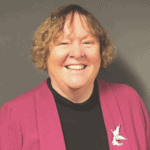 This presentation will first outline how and why the Prenabelt 2 was developed. Then the study methodology will be outlined viz that the study was a 6-night in-home study in late pregnancy involving 10 pregnant women. Results of the effectiveness of the device to avoid supine sleep will be shared as well as qualitative data from the participants regarding their experiences with the new device.
This presentation will first outline how and why the Prenabelt 2 was developed. Then the study methodology will be outlined viz that the study was a 6-night in-home study in late pregnancy involving 10 pregnant women. Results of the effectiveness of the device to avoid supine sleep will be shared as well as qualitative data from the participants regarding their experiences with the new device.
Dr Jane Warland is the recently appointed professorial lead (midwifery) at Curtin University / King Edward memorial Hospital Perth Western Australia. She has an extensive track record in Stillbirth research. In the past few years she has focussed her research on stillbirth prevention strategies including going to sleep position and how to best promote lengthy side sleeping in late pregnancy.

Star Legacy Foundation. All Rights Reserved. Privacy Policy Disclaimer
Registered 501(c)(3) EIN: 26-0227601